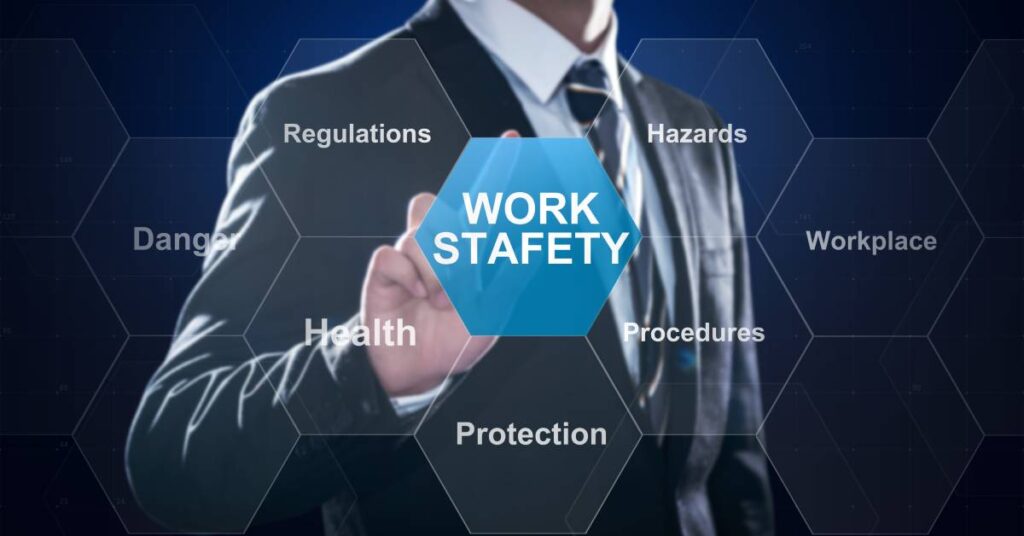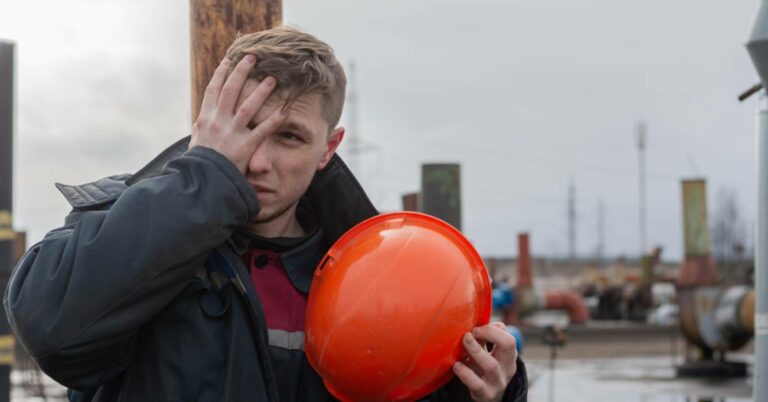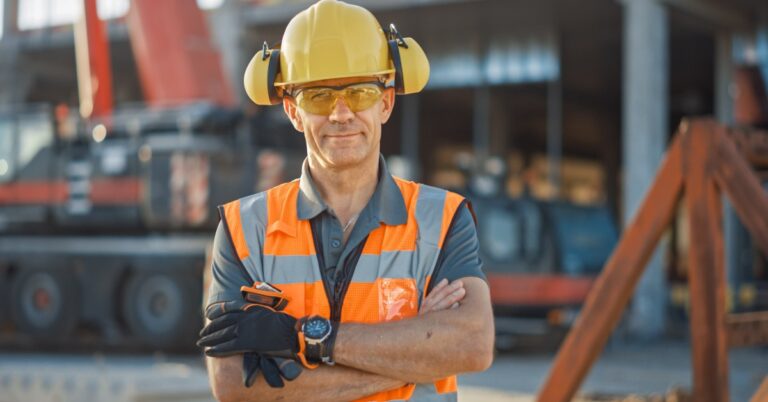Workplace safety is a regulatory requirement and a fundamental aspect of running a successful business. We cannot overstate its importance, as it directly impacts employee well-being and overall productivity. Safety consultants are professionals tasked with guiding organizations through the complexities of safety regulations and practices. We’ll explore what you should know when hiring a safety consultant, providing valuable insights and tips to ensure you make the right choice for your business.

What Is a Safety Consultant?
A safety consultant is a professional who specializes in workplace safety and health regulations. Here are some of their primary responsibilities:
Ensuring Compliance
Their primary role is to help businesses identify potential hazards, develop safety protocols, and ensure compliance with local, state, and federal safety regulations. Safety consultants often have a background in occupational health and safety, engineering, or industrial hygiene, and they bring a wealth of knowledge and experience to the table.
Reducing Workplace Accidents
A safety consultant’s responsibilities include conducting safety audits, developing safety training programs, and advising on risk management strategies. They work closely with management and employees to create a safe working environment. Safety consultants can significantly reduce the likelihood of workplace accidents and injuries by identifying potential risks and implementing preventive measures.
Communication and Problem Solving
In addition to their technical expertise, safety consultants also possess strong communication and problem-solving skills. They can effectively convey complex safety information to employees at all levels and develop practical solutions to address safety concerns.
Industries That Require Safety Consultants
Hiring a safety consultant offers numerous benefits for businesses across various industries. Here are some of the most prominent:
- Construction: Due to the inherent risks associated with construction sites, safety consultants are essential to ensure compliance with safety standards and reduce the risk of accidents and injuries.
- Manufacturing: Manufacturing facilities often involve complex machinery and hazardous materials, necessitating the expertise of safety consultants to maintain a safe working environment and handle emergency situations.
- Oil and Gas: This industry involves high-risk operations, including the handling of flammable materials. Safety consultants are crucial for implementing safety protocols and minimizing the risk of explosions and environmental incidents.
- Healthcare: Hospitals and healthcare facilities must adhere to strict health and safety standards to protect patients and staff, thus benefiting from the guidance of safety consultants.
- Chemical Processing: Safety consultants help businesses in this industry manage risks associated with the handling, storage, and disposal of chemicals, ensuring compliance with regulations and preventing accidents.
- Transportation: Safety consultants help transportation companies address worker and operational safety, especially in sectors such as aviation, shipping, and railways, where strict safety protocols are mandatory.
- Mining: The mining industry is fraught with potential hazards, making the presence of safety consultants critical to safeguard workers’ health and regulate safety procedures.
- Agriculture: Due to the use of heavy equipment and exposure to pesticides, safety consultants assist in developing safety training and protocols to protect agricultural workers.
By identifying hazards and implementing effective safety measures, consultants can create a safer work environment for individuals across various sectors.

How To Choose the Right Safety Consultant
Selecting the right safety consultant for your business is a critical decision that requires careful consideration. Here are some key factors to consider when making your choice:
- Look for a consultant with a proven track record and relevant experience in your industry. They should have a deep understanding of the specific safety challenges and regulations that apply to your business.
- Ensure the consultant holds relevant certifications, such as CSP (Certified Safety Professional) or CIH (Certified Industrial Hygienist). These credentials demonstrate their expertise and commitment to the field.
- Ask for references and read online reviews from previous clients. This information can provide valuable insights into the consultant’s effectiveness and professionalism.
- A good safety consultant should communicate complex safety information clearly and effectively. They should be approachable and work collaboratively with employees at all levels.
- Choose a consultant who can tailor their approach to meet your business’s specific needs. They should be flexible and willing to adapt their strategies to fit your unique requirements.
- While you should always consider the cost, it shouldn’t be the only factor you account for. Focus on the value the consultant can bring to your business in terms of improved safety and compliance.
Be sure to consider the needs and your organization’s budget to find a safety consultant that you can rely on.
The Process of Working With a Safety Consultant
Working with a safety consultant typically involves several stages, each aimed at enhancing your workplace safety. Here’s what you can expect:
- The consultant will conduct a thorough assessment of your workplace, identifying potential hazards and evaluating existing safety protocols. They may schedule site visits, interviews with employees, and a review of your company’s safety documentation.
- Based on the initial assessment, the consultant will perform a detailed safety audit. The walkthrough involves a comprehensive examination of your workplace, including equipment, processes, and employee practices. The goal is to identify areas of improvement and potential risks.
- Following the audit, the consultant will provide a detailed report outlining their findings and recommendations. They will work with you to develop a customized action plan to address identified hazards and enhance overall safety.
- The consultant will assist in implementing the recommended safety measures, including developing new protocols, conducting training sessions, and updating documentation. They’ll ensure that you or your team will effectively communicate all changes to employees and integrate them into daily operations.
- After implementing the safety measures, the consultant will continue to monitor your workplace to ensure compliance and effectiveness. They may conduct follow-up audits and provide ongoing support and guidance to address any emerging issues.
The future of workplace safety will involve a more holistic approach that considers physical, mental, and emotional well-being. Safety consultants will help businesses develop comprehensive safety programs that address all aspects of employee health and well-being.
Creating a Safe and Compliant Workplace
We cannot overstate the importance of workplace safety, and safety consultants are crucial in ensuring a safe and compliant work environment. They bring valuable expertise and insights that can make a significant difference in the future of workplace safety. Businesses can mitigate risks, enhance employee well-being, and improve overall productivity by considering what you should know when hiring a safety consultant.
Ready to improve workplace safety at your organization? Our regulatory compliance services make keeping up with legal requirements a breeze. Reach out to a trusted safety consultant today and ensure a safer, more productive work environment for your team.






